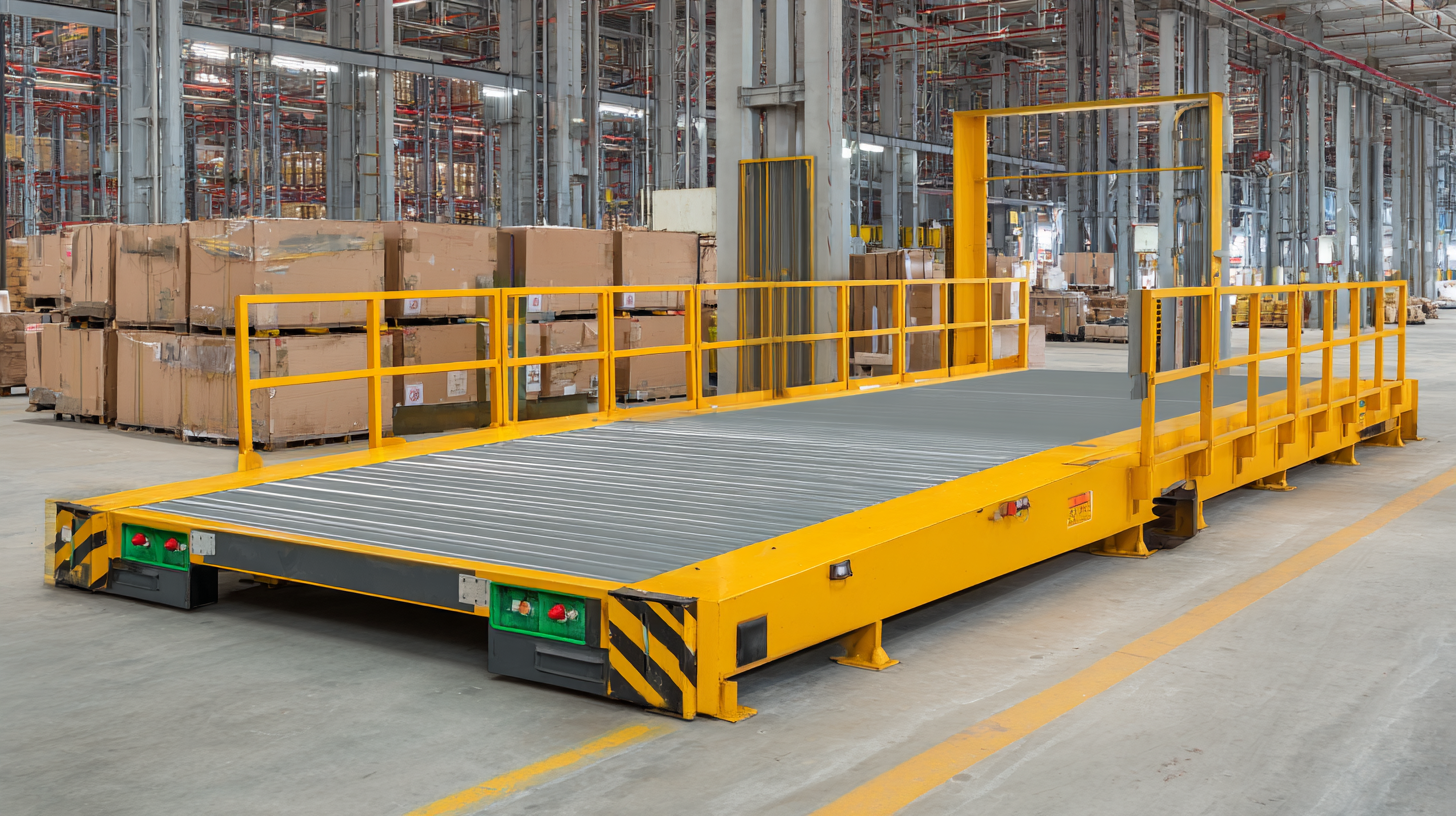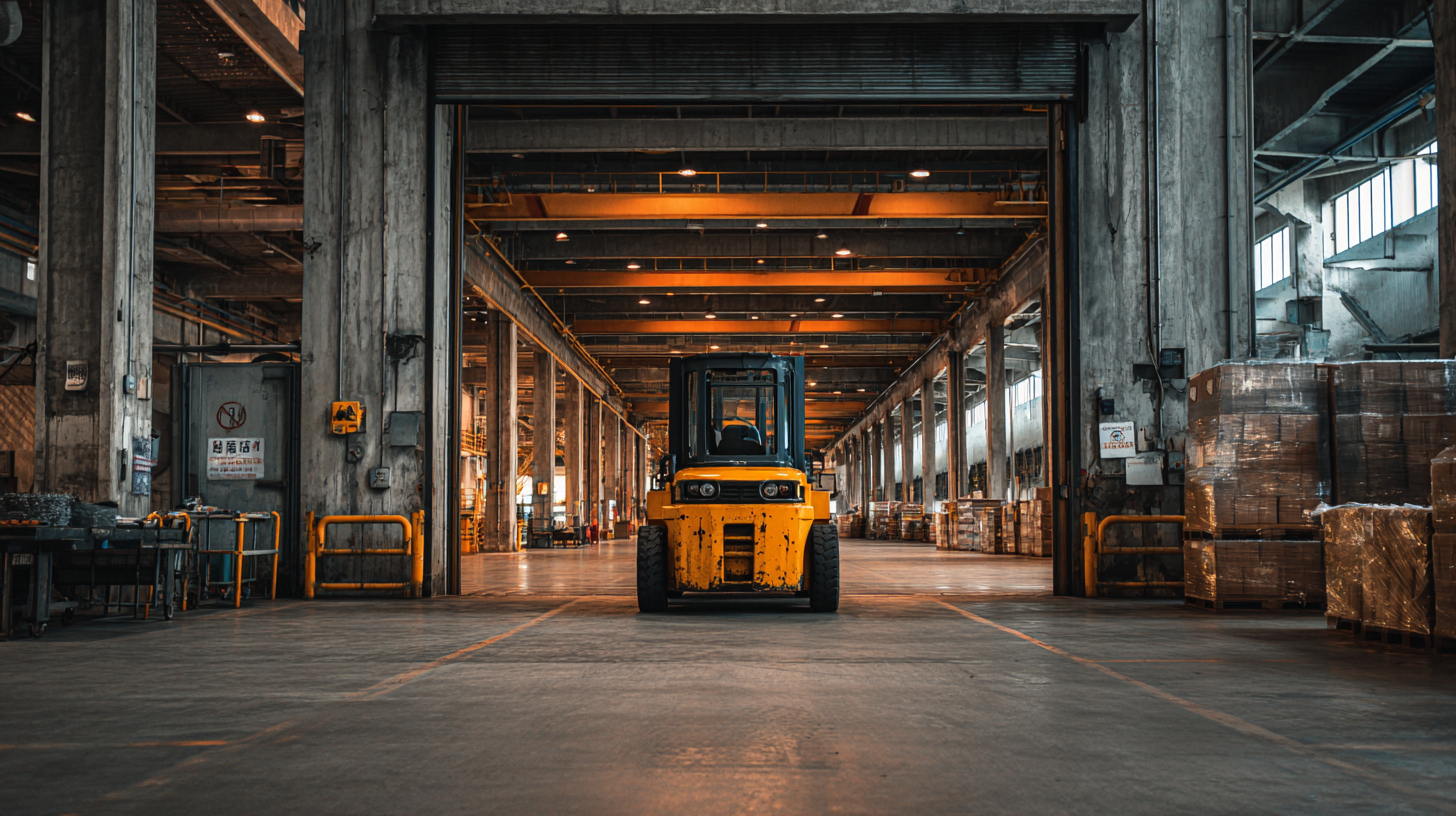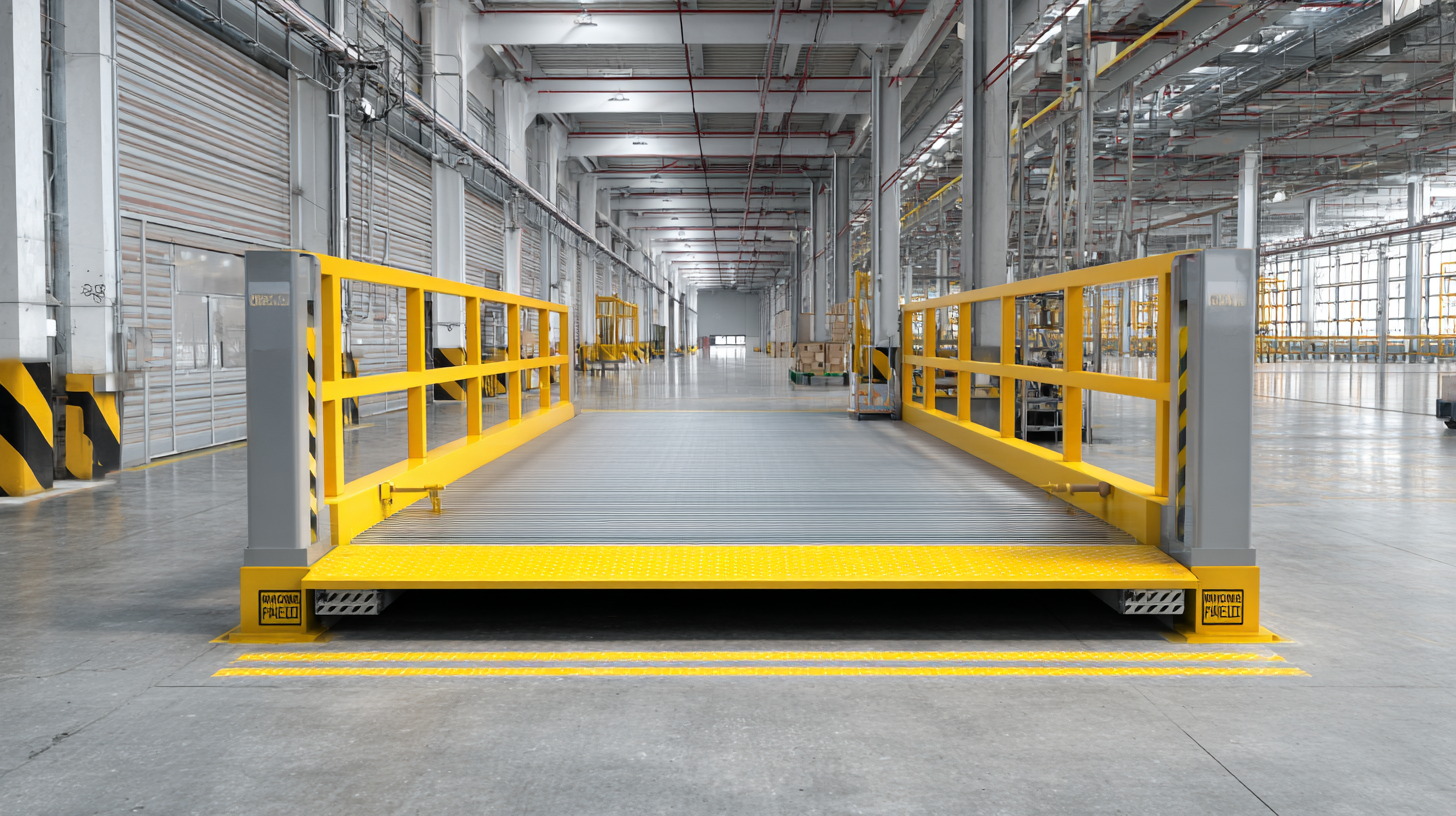In the fast-paced world of warehouse operations, choosing the right dock leveler is crucial for enhancing productivity and safety. According to a report by the Material Handling Industry (MHI), efficient dock equipment can improve loading and unloading times by up to 30%, significantly impacting overall operational efficiency.

With various types of dock levelers available, including hydraulic, mechanical, and air-powered options, understanding the specific needs of your warehouse environment is essential. A study by the Warehousing Education and Research Council (WERC) highlights that improper dock equipment can lead to increased labor costs and safety hazards, making the right choice more critical than ever.
As warehouses strive for greater efficiency and safety, selecting the appropriate dock leveler becomes a fundamental decision that influences not only logistics but also the well-being of workers and the longevity of equipment.
When selecting a dock leveler, it’s crucial to understand the different types available and their specific applications. The most common types include hydraulic, mechanical, and air-powered levelers. Hydraulic levelers use fluid pressure to operate, providing smooth and effortless adjustments, making them ideal for high-frequency loading docks where efficiency is paramount. Mechanical levelers, on the other hand, rely on a spring mechanism for operation. They are generally more cost-effective and require less maintenance, making them suitable for warehouses with occasional loading requirements.
Air-powered dock levelers utilize compressed air to lift the platform, offering a great alternative where vibration sensitivity is a concern, such as in delicate product handling scenarios. Additionally, there are also edge-of-dock levelers that provide a low-cost solution for operations with lower traffic and standard trailer heights. Understanding these distinctions is essential for warehouse management to ensure they choose a dock leveler that meets their specific loading and unloading needs, ultimately enhancing operational efficiency and safety.

When selecting the appropriate dock leveler for your warehouse, it’s crucial to consider several key factors that can significantly impact operational efficiency and safety. The first aspect is the loading capacity. According to the Material Handling Industry (MHI), warehouse operations can see a 20-30% increase in efficiency when utilizing dock levelers that match the specific load requirements of the facility. It is essential to evaluate the maximum weight your dock leveler will need to support regularly.
Another important factor is the type of dock leveler. There are several options available, including mechanical, hydraulic, and pneumatic dock levelers, each suited to different operational needs. A recent report from the Warehousing Education and Research Council (WERC) revealed that hydraulic dock levelers provide the best performance for frequent use, minimizing downtime and maximizing workflow efficiency. Additionally, the level of ease in operation can affect labor costs; units that are user-friendly reduce training time and improve safety, which is a critical consideration in any warehouse environment.
| Feature | Description | Importance |
|---|---|---|
| Weight Capacity | The maximum weight the dock leveler can handle. | High |
| Type of Dock Leveler | Hydraulic, mechanical, or air-powered dock levelers. | Medium |
| Platform Size | Dimensions of the leveler platform. | High |
| Dock Height Range | Adjustable height range to accommodate various truck beds. | High |
| Safety Features | Includes features like safety brackets and warning lights. | Very High |
| Insulation | Insulated options to maintain temperatures for refrigerated products. | Medium |
| Maintenance Requirements | Frequency and type of maintenance required. | Medium |
| Cost | Initial purchase price and long-term operational costs. | High |
When selecting a dock leveler to enhance your warehouse operations, it’s crucial to focus on the essential features that ensure optimal performance. According to a study by the Material Handling Institute, 82% of warehouse professionals report that an efficient dock leveler significantly reduces loading times and increases throughput. Here are five must-have features that can elevate your loading dock efficiency.
Firstly, durability is paramount. A dock leveler should be constructed from heavy-duty materials capable of withstanding rigorous use. Research from the American National Standards Institute indicates that dock levelers with reinforced steel components can extend operational life by up to 30%. Additionally, the ability to accommodate various truck sizes is vital. A versatile dock leveler can facilitate seamless transitions between different vehicles, minimizing delays and enhancing productivity.
Another key feature is ease of operation. Hydraulic dock levelers provide smoother and safer adjustments compared to mechanical alternatives, which have been found to reduce operator fatigue by 40%, according to a report by Forklift Action. Furthermore, safety features like edge sensors and automatic lip extension ensure that both personnel and equipment are protected during loading and unloading operations. Investing in a dock leveler with these essential attributes can lead to significant improvements in your warehouse's performance and safety standards.
 To ensure the longevity and efficiency of your dock leveler, regular maintenance is essential. According to a report by the Material Handling Industry (MHI), poorly maintained dock levelers can lead to a 25% reduction in operational efficiency. This inefficiency often stems from dirt and debris buildup, which can hinder the movement of the leveler. Implementing a routine cleaning schedule, where you inspect and clear the leveler of any obstructions, can significantly enhance its performance and lifespan.
To ensure the longevity and efficiency of your dock leveler, regular maintenance is essential. According to a report by the Material Handling Industry (MHI), poorly maintained dock levelers can lead to a 25% reduction in operational efficiency. This inefficiency often stems from dirt and debris buildup, which can hinder the movement of the leveler. Implementing a routine cleaning schedule, where you inspect and clear the leveler of any obstructions, can significantly enhance its performance and lifespan.
Another critical aspect of maintenance involves checking hydraulic systems and seals. The National Association of Wholesaler-Distributors (NAWD) emphasizes that nearly 70% of dock leveler failures are attributed to hydraulic issues. Regular inspections and timely servicing of hydraulic components not only prevent unexpected breakdowns but also improve safety protocols within your warehouse. By investing in professional servicing and using high-quality lubricants for moving parts, warehouses can effectively prevent wear and tear, ensuring that dock levelers operate optimally for years to come.
When investing in dock levelers for your warehouse, balancing cost and quality is fundamental to ensuring a wise expenditure. While it's tempting to go for the lowest price, consider the long-term implications of your choice. High-quality levelers may have a higher upfront cost but can reduce maintenance expenses and downtime. Moreover, they often come with better warranties, offering peace of mind and potential savings over time.
**Tips:** When evaluating dock levelers, look for features that enhance durability, such as reinforced designs and high-quality materials. Check the specifications for load capacity and operational mechanisms. Investing in levelers with adjustable heights can also improve versatility and ease of use.
Ultimately, assessing your operational needs will help determine which features are most important for your warehouse. Conduct a cost-benefit analysis by estimating the total cost of ownership, including installation and maintenance, before making a decision. This approach allows you to highlight the true value of your investment beyond the sticker price.
**Tips:** Don't hesitate to consult with manufacturers or industry experts to gain insights into the best options that suit your specific requirements. Leveraging customer reviews and case studies can also provide valuable information on the performance and reliability of various models.